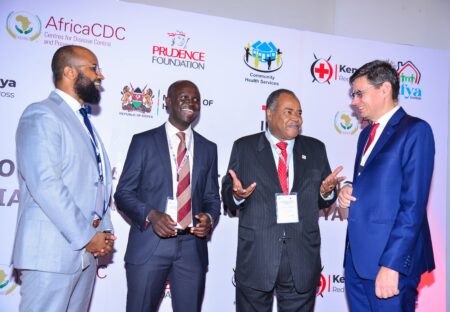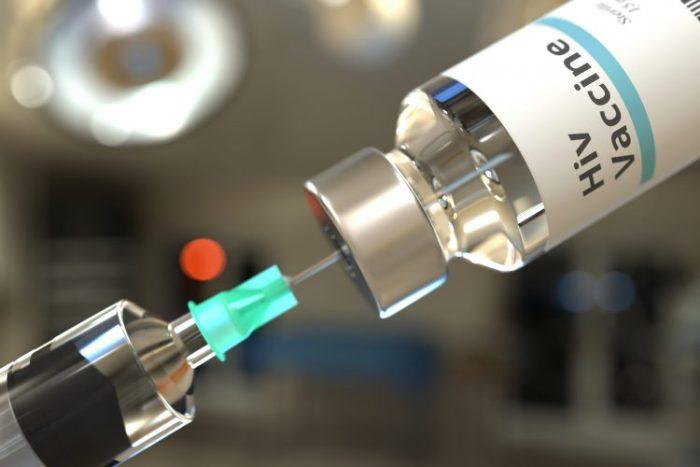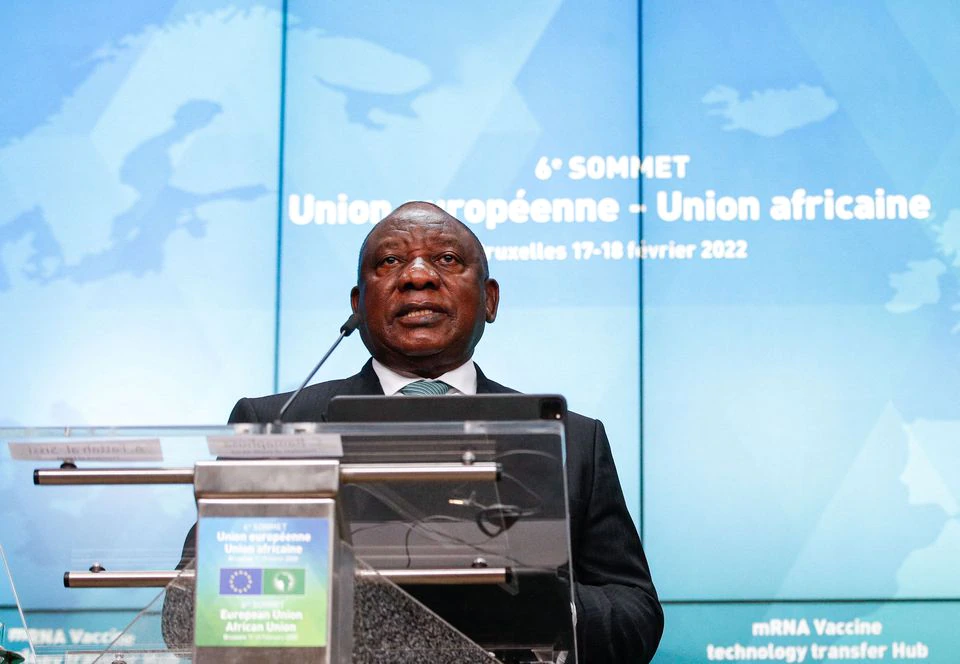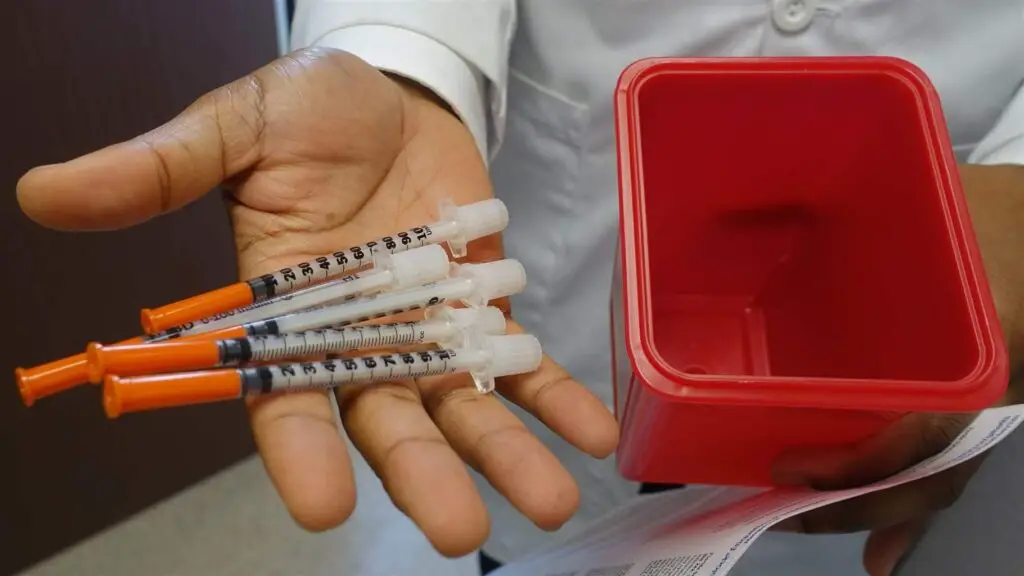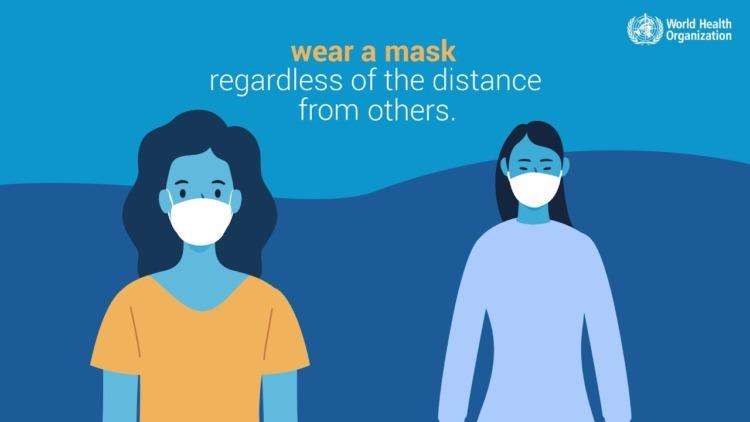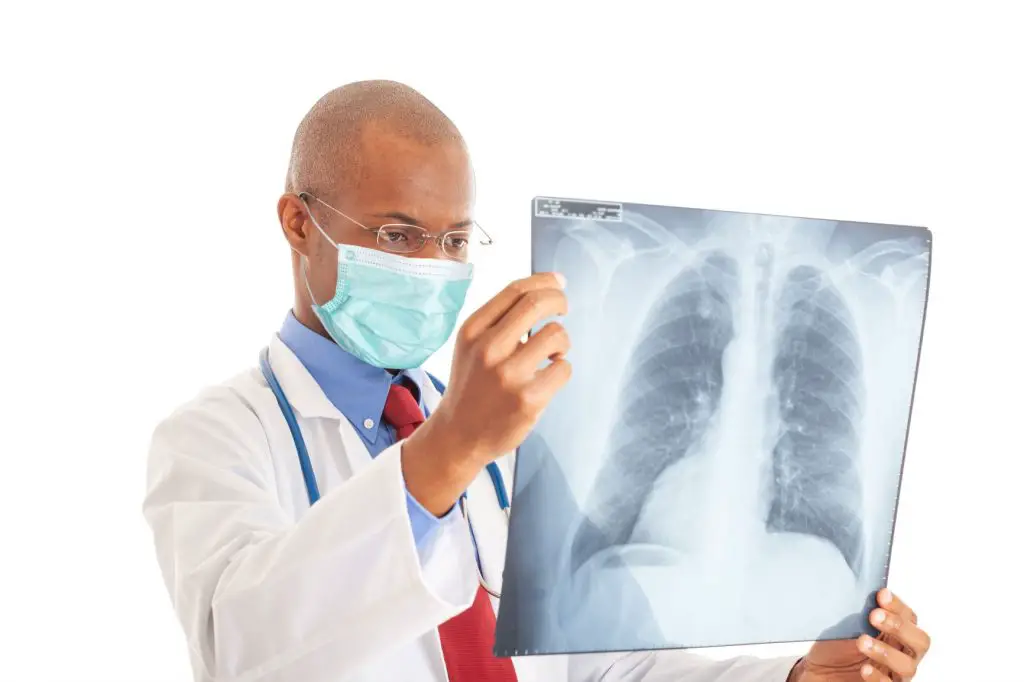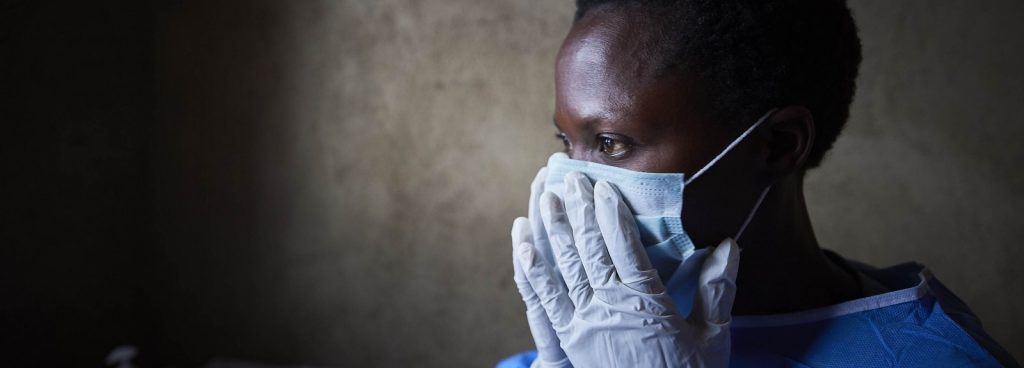- Africa’s new dawn: the rising role of digital and AI in agriculture
- Can Dangote Refinery Transform Africa Energy Ambition
- Gallup Survey: 80 per cent of Kenyan Workers Are Disengaged and Seek New Opportunities
- Madagascar Man Freed from 5KG Tumor After 15-Year Struggle
- How women in Africa are perceived and treated
- Sugar consumption in Kenya to Increase to 1.23 Million Tonnes
- Can Somalia and Turkey Oil deal Bring Change in Somaliland
- Remittances to Kenya dropped to $371.6 million in June, marking a six month low
Browsing: Africa CDC
- Kenya has already enlisted over 107,831 community health workers through the Ministry of Health.
- The target cohort of 25,000 will be trained in the first phase, according to the Resilient and Empowered African Community Health (REACH) initiative.
- REACH will be implemented in phases, aiming to boost skills of the 107,831 community health workers employed by the Government.
Kenya has launched a community health initiative supported by the African Union geared to boosting primary health care at the grassroots, targeting under-served populations.
The programme, under the auspices of the African Union (AU) Member States, is known as Resilient and Empowered African Community Health (REACH) and is geared towards increasing Community Health Workers (CHWs) to over two million in the continent by 2029.
Under the first phase of the initiative, over 25,000 CHWs newly recruited in Kenya will be trained on community health and on the use of Community Health Promotion (CHP) …
- The Africa Centre for Disease Control (Africa CDC) will receive $100 million from the Wold to support a programme that would help enhance its technical capacity
- The funding will also strengthen Africa CDC’s institutional framework to intensify support to African countries in preparing for, detecting, and responding to disease outbreaks
- The funds come when the continent is addressing several infectious disease outbreaks in addition to COVID-19, and there are growing risks looking ahead
The Africa Centre for Disease Control (Africa CDC) will receive $100 million from the Wold to support a programme that would help enhance its technical capacity.
According to the partners, the deal will also strengthen Africa CDC’s institutional framework to intensify support to African countries in preparing for, detecting, and responding to disease outbreaks and public health emergencies.
The funds come when the continent is addressing several infectious disease outbreaks in addition to COVID-19, and there are …
mRNA-1644 utilizes Moderna’s messenger RNA (mRNA) technology to deliver a specific class of B cells needed to develop broadly neutralizing antibodies (bnAbs) to fight HIV infection. Inducing bnAbs is considered the primary goal of an HIV vaccine, and this requires B-cell activation.
The primary trial endpoints are safety and immunogenicity. The IAVI-sponsored clinical trial, IAVI G003, will test the safety and efficacy of vaccination with the HIV immunogen eOD-GT8 60mer, delivered via Moderna’s mRNA platform. eOD-GT8 60mer was developed by IAVI and Scripps Research teams and was initially tested in phase 1 clinical trial IAVI G001.
According to Contagion Live, IAVI G003 is expected to enroll 18 healthy, HIV-negative adults. The participants will receive 2 doses of eOD-GT8 60mer mRNA, which contains a portion of the viral sequence but cannot cause HIV infection. They will be monitored for safety for 6 months after their second dose, and their immune responses …
Stavros Nicolaou, a Senior Executive at Aspen Pharmacare Group said in the absence of orders or commitments, Aspen is considering the repurposing of two COVID-19 production lines for the manufacture of other products.
“The continent would lose its only existing COVID vaccine manufacturing capacity, It would be a massive setback for Africa’s plans to localize and reduce its dependency on imported vaccines,” he said.
John Nkengasong, director of the Africa Centres for Disease Control and Prevention, said global health security would be undermined if companies like Aspen were not backed.…
China actively honours its commitment to making vaccines a global public good. At the time when Chinese vaccines had just reached the market and domestic supply was tight, China began to supply vaccines to Africa in support of its battle against the pandemic.
By November 2021, China had provided over 1.7 billion doses of Covid-19 vaccine to more than 110 countries and organizations, including 50 African countries and the AU Commission, and is striving to provide an aggregate total of two billion doses by the end of 2021.
In addition, it donated US$100 million to COVAX, which aims at ensuring all countries have access to a safe, effective vaccine.…
The Africa Centres for Disease Control and Prevention, Africa CDC, has issued a statement on the recent international travel rules in the context of the COVID-19 pandemic.
The Specialised Technical Institution of the African Union, noted in a statement that the planned changes to international travel rules are discrminative.
The rules were communicated by the Government of the United Kingdom (U.K), which will be enforced starting at 4:00 am on Monday 4th October 2021.
Also Read: Public, private sector investment needed for vaccine manufacturing: EAC
“With a full course of the Oxford/AstraZeneca, Pfizer BioNTech, Moderna or Janssen vaccines from a relevant public health body in Australia, Antigua and Barbuda, Barbados, Bahrain, Brunei, Canada, Dominica, Israel, Japan, Kuwait, Malaysia, New Zealand, Qatar, Saudi Arabia, Singapore, South Korea, Taiwan or the United Arab Emirates (UAE). Formulations of the 4 listed vaccines, such as AstraZeneca Covishield, AstraZeneca Vaxzevria and Moderna Takeda, qualify as …
This is the message being emphasised by Africa Centres for Disease Control and Prevention (Africa CDC) as the world pushes for continuous usage of masks in a bid to stop the spread of COVID-19.
“As the pandemic continues to spread, we must fight against pandemic fatigue and continue masking to protect our friends, our families, our communities, and the world,” reads a statement from Africa CDC.
According to the World Health Organisation (WHO) every three weeks, the new Delta variant cases keep doubling. This is not a good sign. WHO data shows that a third wave has now been reported in 16 countries. This includes nine countries that are currently experiencing surging cases.
The World Health Organisation has classified each emerging variant as either a Variant of Concern (VOC) or a Variant of Interest (VOI). The Alpha, Beta, Gamma and Delta variants fall under Variants of Concern. Whereas the Eta, …
ACIP offers a unique opportunity to change the way disease surveillance is conducted enhancing the ability to acquire good and timely data.…
On Sunday, May 10th, statistics from the WorldOmeter showed that New York state had recorded 41 fatalities in 24 hours, down from a high of almost two thousand deaths in Mid April. This was a significant drop in deaths with total US fatalities dropping to below a thousand.
This is a similar drop being recorded all over the world with record low levels being recorded in European hotspots of Italy, France, Spain, and United Kingdown with figures almost going to double digits. It is expected that the effects of the disease might not be felt in a few months.
However, as global figures decline, the same can not be said of Africa which has since a significant rise, blatant disobeying containment measures, and rise of unscientific measures to curb the disease. According to Africa CDC, the AU backed entity, there are 63,293 confirmed cases spread across the continent with 2,290 …
Economists define a recession as a subdued growth that lasts at least six months and goes for another 18 months while depression can last up to a decade. The global economy was already heading to a recession even before the outbreak and spread of COVID-19.
What has followed is global market players and governments pumping millions of dollars to contain the spread of the virus that has Wuhan city and its epicenter. The US and Europe have already announced setting up of special kitty to treat, contain and mitigate the effects of the virus both as a disease as well as the economic heat that comes with the disease.
China, the second-largest economy in the world and Italy- Europe’s third-largest economy and 8th globally- have been severely affected by cities like Rome remaining ghost-towns as economic and commercial activities come to a halt. There is a growing fear that the …





